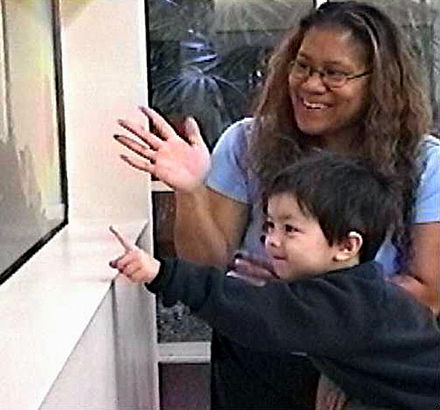Autism
Autism, also known as Autism Spectrum Disorder (ASD), is a neurodevelopmental condition characterised by difficulties in social interaction, verbal and nonverbal communication, and the presence of repetitive behaviours or restricted interests. The condition varies widely in its manifestation and severity, leading to the term "spectrum." The onset of autism typically occurs in early childhood, and it persists throughout life.
Signs and Symptoms
Autism presents a range of symptoms that can differ significantly among individuals. Common signs include:
- Difficulties in social interaction and communication.
- Repetitive behaviours and restricted interests.
- Resistance to changes in routine.
- Unusual sensory responses, such as hyper- or hypo-reactivity to sensory inputs.
Other characteristics may include special interests, stereotypic body movements (stimming), and a preference for specific routines. Some individuals may be nonspeaking, while others have proficient spoken language but struggle with social subtleties.

Diagnosis
Diagnosis of autism is based on a combination of clinical observations of behaviour and comprehensive diagnostic testing by qualified professionals, including psychiatrists, clinical psychologists, neuropsychologists, paediatricians, and speech-language pathologists. For adults, a patient's history of autistic traits becomes more important.
The diagnostic process may involve tools like the Autism Diagnostic Observation Schedule (ADOS) and the Autism Diagnostic Interview-Revised (ADI-R). Differential diagnosis is very important to distinguish autism from other conditions such as intellectual disability, anxiety, ADHD, and schizophrenia.
Treatment
Management of autism is tailored to the individual's needs and often involves multiple therapeutic approaches:
- Behavioural Interventions: Applied Behaviour Analysis (ABA) and Positive Behaviour Support (PBS) to develop social, communication, and life skills.
- Therapies: Speech-language therapy, occupational therapy, and cognitive-behavioural therapy (CBT) to address specific deficits.
- Medications: Psychotropic medications may be prescribed to manage comorbid conditions like anxiety, depression, and irritability.

Epidemiology
Autism affects approximately 1 in 100 people worldwide, with boys being diagnosed more frequently than girls. The increasing prevalence of autism diagnoses is attributed to better awareness, improved diagnostic criteria, and possibly, a real increase in cases.

Societal and Cultural Perspectives
Autism has gained significant attention within the context of neurodiversity, advocating that autistic individuals are part of the natural variation in the human genome. This perspective emphasises acceptance and accommodation rather than seeking a cure.
The autism rights movement promotes the inclusion of autistic behaviours and the recognition of autistic people as a minority group with unique needs.

Conclusion
Understanding autism is essential for providing appropriate care and support. With early intervention and tailored therapeutic approaches, individuals with autism can achieve a higher quality of life and greater independence.
Self-assessment MCQs (single best answer)
Which of the following is NOT a common symptom of autism?
At what stage of life does autism typically present itself?
Which professional is NOT typically involved in the diagnosis of autism?
Which of the following is a behavioural intervention commonly used in the treatment of autism?
Which therapy is aimed at improving specific deficits in autism, such as speech and language?
Which gender is diagnosed with autism more frequently?
Which of the following is considered a core symptom of autism according to the DSM-5-TR?
Which of the following medications is approved by the FDA to treat irritability associated with autism?
Which theory advocates that autism should be accepted as a natural variation in the human genome?
What is the estimated prevalence of autism worldwide?
Dentaljuce
Dentaljuce provides Enhanced Continuing Professional Development (CPD) with GDC-approved Certificates for dental professionals worldwide.
Founded in 2009 by the award-winning Masters team from the School of Dentistry at the University of Birmingham, Dentaljuce has established itself as the leading platform for online CPD.
With over 100 high-quality online courses available for a single annual membership fee, Dentaljuce offers comprehensive e-learning designed for busy dental professionals.
The courses cover a complete range of topics, from clinical skills to patient communication, and are suitable for dentists, nurses, hygienists, therapists, students, and practice managers.
Dentaljuce features Dr. Aiden, a dentally trained AI-powered personal tutor available 24/7 to assist with queries and provide guidance through complex topics, enhancing the learning experience.
Check out our range of courses, or sign up now!


